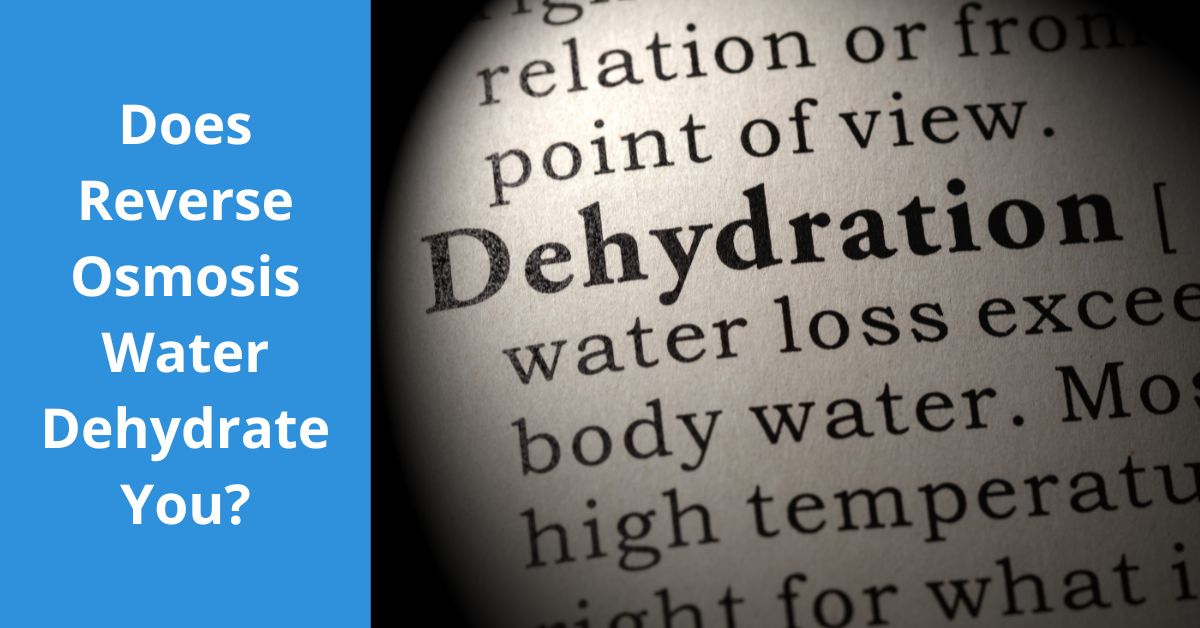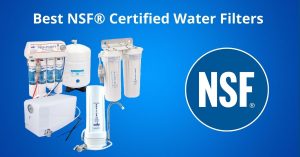In recent years, reverse osmosis (RO) water filtration has gained popularity as a method for purifying drinking water at home. With concerns about water quality on the rise, many homeowners are turning to reverse osmosis water filters to ensure their families have access to clean, safe water. However, a common question that often arises is whether drinking reverse osmosis water can lead to dehydration. Let’s dive into this topic and separate fact from fiction.
Understanding Reverse Osmosis
Before we address the dehydration concern, it’s important to understand what reverse osmosis is. A reverse osmosis water filter uses a semi-permeable membrane to remove contaminants, including dissolved solids, from water. This process effectively eliminates a wide range of impurities, producing pure and clean water.
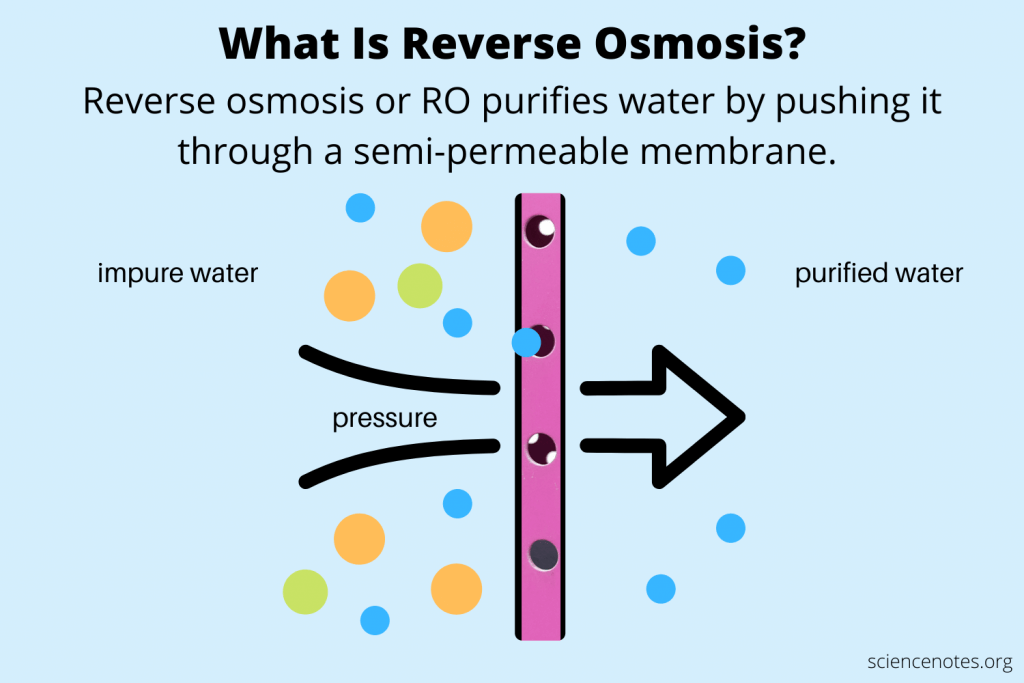
Source: Sciencenotes.org (https://sciencenotes.org/what-is-reverse-osmosis/)
There are several types of reverse osmosis systems available for home use:
Under sink reverse osmosis water filter
Countertop reverse osmosis water filter
Whole house reverse osmosis water filter
Each of these systems offers unique benefits, but they all work on the same basic principle of forcing water through a membrane to remove contaminants.
The Dehydration Myth
Now, let’s address the main question: Does reverse osmosis water dehydrate you? The short answer is no; reverse osmosis water does not cause dehydration. This misconception likely stems from the fact that RO water has a lower mineral content than tap or spring water.
Here’s why RO water doesn’t cause dehydration:
The water is still there. The primary function of water in hydration is the water molecule itself (H2O), which is its primary function in hydration. Your body absorbs these molecules found in RO water.
Mineral contribution is minimal: While minerals in water can contribute to your overall nutrient intake, the amount is generally small compared to what you get from food.
Body adaptation: Your body is adept at maintaining proper hydration and mineral balance, regardless of minor variations in water composition.
The Role of Minerals in Hydration
RO water without minerals can taste flat. While minerals in water don’t significantly impact hydration, they do play other important roles in our health. Some argue that the lack of minerals in RO water could potentially lead to mineral deficiencies over time. However, it’s crucial to remember that we obtain most of our necessary minerals from our diet, not from water.
That said, if you’re concerned about mineral intake, there are solutions:
- Balanced diet: Ensuring a varied, nutrient-rich diet will provide all the minerals your body needs.
- Mineral supplements can address any potential deficiencies, if recommended by a healthcare professional.
- Remineralisation: Some systems, like the countertop reverse osmosis water filter 4-stage with remineraliser or the under sink reverse osmosis water filter 5-stage, add beneficial minerals back into the water after filtration.
Countertop Reverse Osmosis Water Filter with Remineraliser
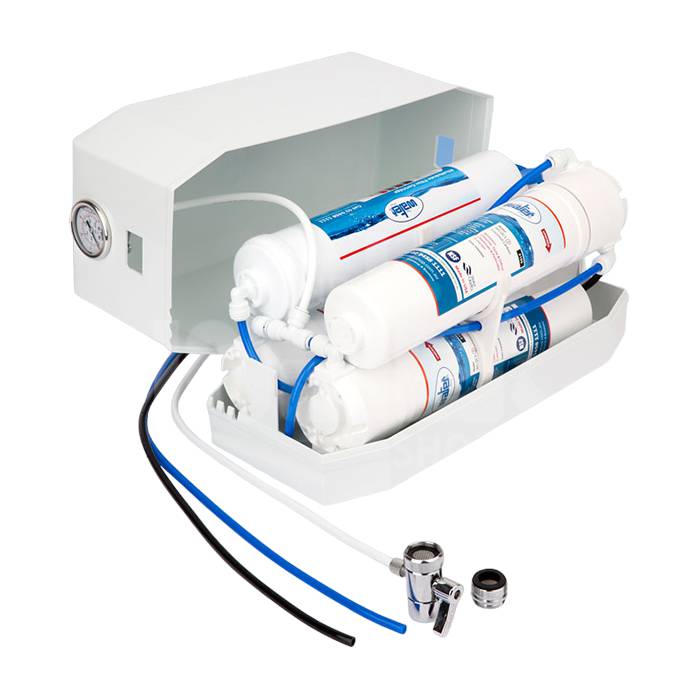
Under Sink Reverse Osmosis Water Filter with Remineraliser
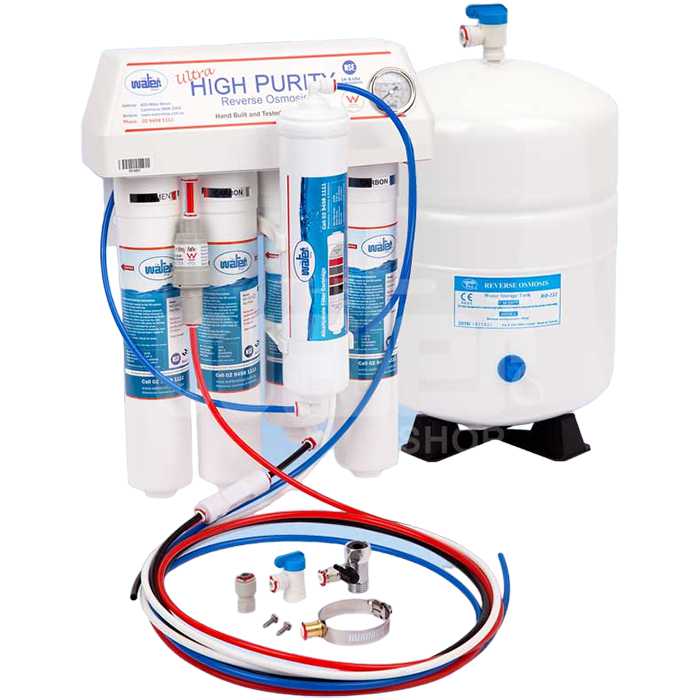
Benefits of Reverse Osmosis Water
While the dehydration concern is unfounded, the benefits of reverse osmosis water are numerous:
- Contaminant removal: RO systems effectively remove a wide range of contaminants, including heavy metals, bacteria, and chemicals.
- Improved taste: Pure water tastes better than tap water containing chlorine and other contaminants.
- Reduced environmental impact: Using an RO system can reduce reliance on bottled water, decreasing plastic waste.
- Cost-effective: While there’s an initial investment, an RO system can save money compared to buying bottled water long-term.
Choosing the Right RO System
When selecting a reverse osmosis system for your home, consider the following options:
Under sink reverse osmosis water filter: Ideal for those who want filtered water directly from a dedicated faucet and have space under their sink. There are different options available.
Countertop reverse osmosis water filter 3-stage: This is an excellent choice for individuals who have limited under-sink space or prefer a portable solution.
Countertop reverse osmosis water filter 4-stage (with remineraliser): Similar to the 3-stage system but with the added benefit of putting beneficial minerals back into the water.
Each system has its advantages, and the best choice depends on your specific needs, space constraints, and preferences.
Maintaining Proper Hydration
Regardless of the type of water you drink, maintaining proper hydration is crucial for overall health. Here are some tips:

Drink regularly: Don’t wait until you’re thirsty to drink water.

Monitor your urine: Light yellow urine generally indicates adequate hydration.

Consider your level of activity. Increase water intake during exercise or in hot weather.

Eat water-rich foods: Fruits and vegetables can contribute to your daily water intake.
The fear that reverse osmosis water causes dehydration is a myth. RO water is just as hydrating as any other type of water. By providing clean, contaminant-free water, reverse osmosis systems play a crucial role in ensuring the health and safety of your family’s drinking water.
Remember, staying hydrated is about consistently drinking enough water, regardless of its source.

